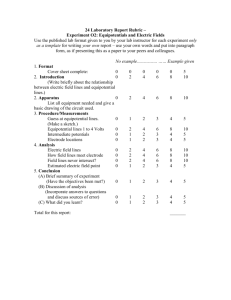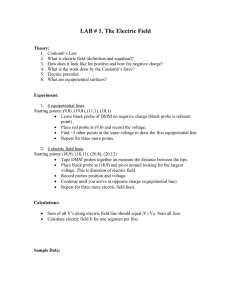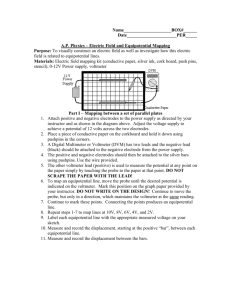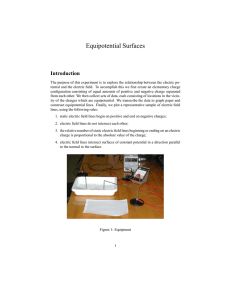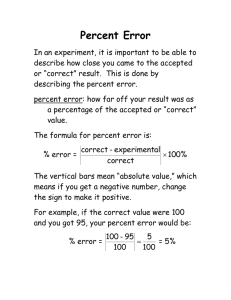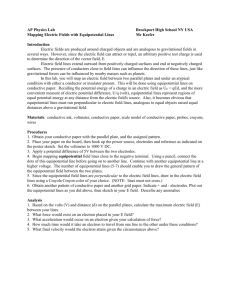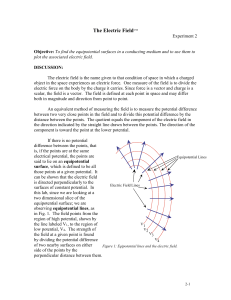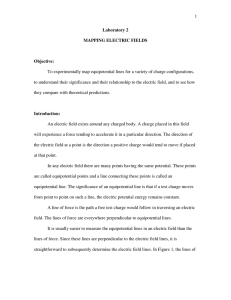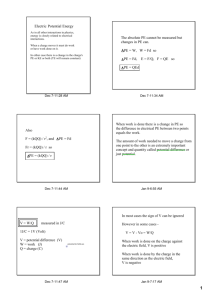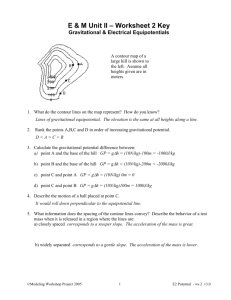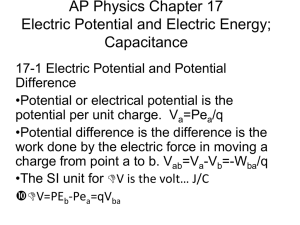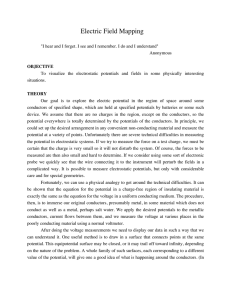Electric Field and Equipotential Mapping NAME: Purpose: To
advertisement
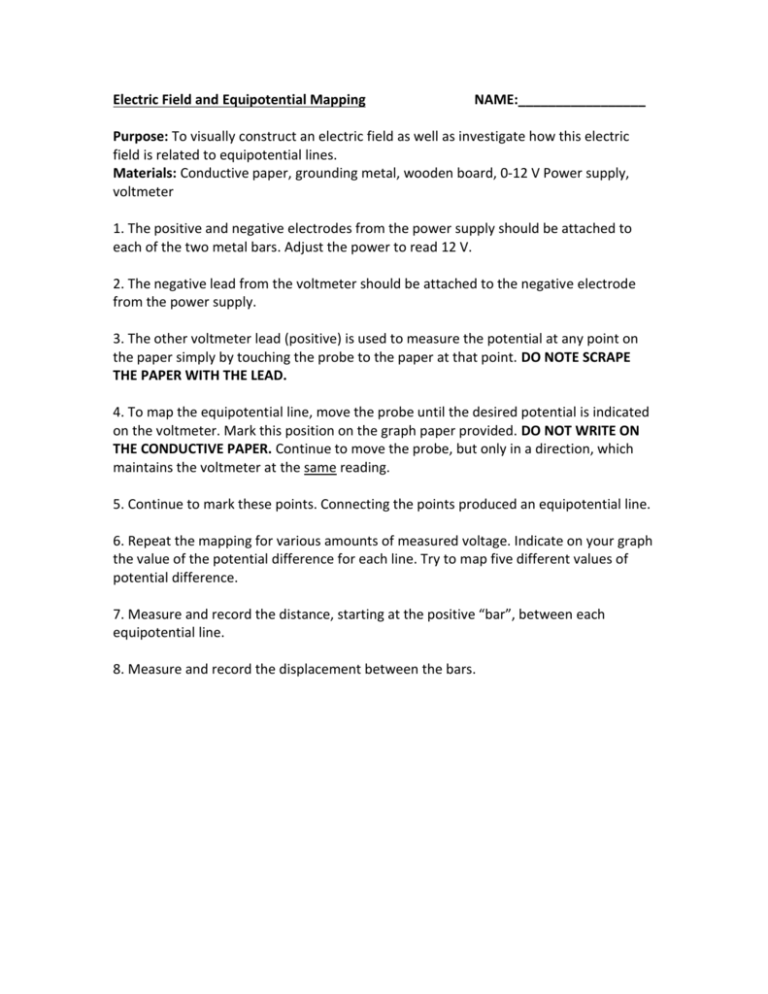
Electric Field and Equipotential Mapping NAME:_________________ Purpose: To visually construct an electric field as well as investigate how this electric field is related to equipotential lines. Materials: Conductive paper, grounding metal, wooden board, 0-12 V Power supply, voltmeter 1. The positive and negative electrodes from the power supply should be attached to each of the two metal bars. Adjust the power to read 12 V. 2. The negative lead from the voltmeter should be attached to the negative electrode from the power supply. 3. The other voltmeter lead (positive) is used to measure the potential at any point on the paper simply by touching the probe to the paper at that point. DO NOTE SCRAPE THE PAPER WITH THE LEAD. 4. To map the equipotential line, move the probe until the desired potential is indicated on the voltmeter. Mark this position on the graph paper provided. DO NOT WRITE ON THE CONDUCTIVE PAPER. Continue to move the probe, but only in a direction, which maintains the voltmeter at the same reading. 5. Continue to mark these points. Connecting the points produced an equipotential line. 6. Repeat the mapping for various amounts of measured voltage. Indicate on your graph the value of the potential difference for each line. Try to map five different values of potential difference. 7. Measure and record the distance, starting at the positive “bar”, between each equipotential line. 8. Measure and record the displacement between the bars. Data Table V2 (Volts) V1 (Volts) d (Meters) (𝑉2 − 𝑉1 ) 𝑑 (V/m) 𝐸𝑎𝑣𝑔 = 12 Average Uniform Electric Field Displacement between the bars = _________________ Using the equation, 𝑉 = 𝐸𝑑, the total displacement between the bars, and the total voltage, calculate the electric field between the plates. What do you notice about the MAGNITUDE of the electric field between the bars and the electric field between the equipotential lines? Calculate a % difference between the electric field between the bars and the electric field between the equipotential lines. Sketch in the electric field lines on your equipotential map. What do you notice about the orientation of the electric field lines and the equipotential lines? What kind of relationship is there between Voltage and Displacement? What was constant in this experiment?
